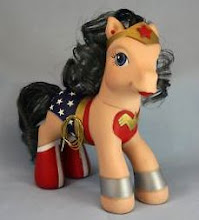This post is to let you know that last week I finished my third rotation for the year, breast surgery. It was bloody good.
(Note: When I say breast surgery, I'm not talking about augmentation - I'm talking about mastectomies, lumpectomies, and axillary dissections for breast cancer, and removal of benign fibroadenomas.)
A few third years recommended it to me last year, and because I didn't have a strong preference for my compulsory surgical rotation, I took their advice. I didn't actually get allocated to it first time around, but I shuffled my rotations and squeezed it in. VERY glad I did.
It was a good mix of surgery and medicine. Not as much surgery as some surgical rotations because there are only 2-3 breast lists each week (half day each). So to fill in the time we had some oncology teaching, which was really useful.
The breast team were all really nice, and I got to scrub in for pretty much everything. For some surgeries, it was just me and the consultant. My job: hold the instruments and hold the boob. Heh.
- Best moment: Being told by the consultant that he preferred me to scrub in instead of the new resident because I had much more experience than her! He was brilliant - really made me feel like a valuable part of the team (which is unusual for a medical student).
- Weirdest moment: I had to massage a woman's breast for 5 minutes. Let me explain - the surgeon had injected blue dye into a tumour, and I had to massage the breast so that the dye would move to the sentinel lymph node/s. My arm got sore! Then when I went to scrub in, he told me that he didn't think it'd been 5 minutes (it had) and he wanted it done for a bit longer.
- Worst moment: The way these (male) doctors who deal with breast cancer every day still can't handle it when a woman starts to cry. Surely they must be used to it by now, and surely they know the right things to say and do. One registrar got all nervous and mumbly until I suggested that the patient might like some tissues, which he went to get (anything to get him away from the emotional woman!). One of the consultants completely ignored the woman in tears and proceeded to talk directly to her husband, not making eye contact even when he said things like "you'll get the scan before your surgery", etc. Aaagh! It's very hard to sit there and say nothing.
Now I'm on rotation 4 of 8 - geriatrics. I'm at a suburban hospital, which is lovely. I had a very cruisy day today with lots of practice doing MMSEs and long cases*. Fun!
* "Long cases assess student performance in eliciting and integrating a patient history, physical examination and basic investigations and as a consequence develop an appropriate clinical summary. The clinical summary includes developing a diagnosis, differential diagnosis and problem list to be presented to a senior clinician." (From The Faculty of Medicine at The University of Sydney.)
We get an hour to take a history and do an examination (unobserved), then 20 minutes to gather our notes, then 20 minutes to present to the examiners. Our long case assessment is in August.

2 comments:
Whatever happened to the "al" after pathologic?
What are "scrubs"? Are they what we used to call theatre clothes?
When did "scrub" acquire the preposition "in", as in "scrub in" for an operation rather than just "scrub"
Do "surgeries" mean operations?
And do Sydney hospitals still have theatres for their surgical drama queens, or are they just rooms these days?
Cultural imperialism on the march I guess, can we stop its westward progress at Cameron's Corner?
Desert Doc
Unfortunately the late Robbins and Cotran won't be able to tell you why they called their book "Pathologic Basis of Disease"...
Post a Comment